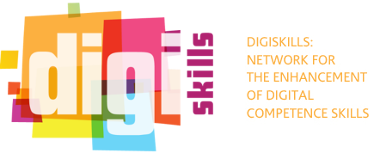Welcome to Digiskills Platform
The strategic guidelines of Europe 2020 put particular emphasis in strengthening horizontal cooperation and the sharing of experience and good practice among the Member States. It’s really crucial for education to fulfil its role in the knowledge triangle, research and innovation objectives and outcomes need to feed back into education, with teaching and learning underpinned by a strong research base, and with teaching and learning environments developed and improved through greater incorporation of creative thinking and innovative attitudes and approaches. Additionally there is a mainstream of eLearning in national policies for the modernisation of education and training, including in curricula, assessment of learning outcomes and the professional development of teachers and trainers.
According to the OECD survey, teachers have few incentives to improve their teaching, as while the most common types of professional development activity available to them are not the most effective. The majority of teachers would like more professional development (particularly on ICT skills, and student behaviour). It has to be mentioned that education and training play a fundamental role in achieving the ‘Europe 2020’ objectives.
All the above create a great deal of activity to ensure basic ICT skills as part of digital competence and learning to learn skills. Current developments in ICT and Web 2.0 technologies have offered the potential for new services, which has significantly transformed our day-to-day personal and professional activities; bare the potential to do the same for education and training. Known as ICT learning, using such technologies can be as simple as accessing a training timetable online, through very complex as developing virtual communities of practice for sharing and creating knowledge
Recent Practices
AGeneve is a social network based on social internet ethics that allows and supports participants to design and control their digital identities. The modules available include:
Module 1. Site pro (ePortfolio)
Module 2 : Blog
Module 3. Social networking
Module 4. Working groups
Module 5. Training on web 2.0 tools
The Open Science Resources (OSR) portal enables teachers to access the finest digital collections in European science centres and museums, to follow educational pathways connecting objects tagged with semantic metadata and to enrich
To provide confidence and independent learning, innovative use of the blog
Learn to work as a team of professionals to solve a specific medical problem with the use of digital resources and tools in English.
Inspiring Science Education is open to schools all over Europe who are welcome to participate through the Inspiring Science Community Portal. Our mission in the Inspiring Science Education team is to provide digital resources and opportunities for teachers to help them make science education more attractive and relevant to students’ lives.
Los materiales en audio estimulan la autonomía del estudiante, además puede servir, entre otros, para suministrar información, exponer contenidos, desarrollar habilidades cognitivas, actitudes y valores, ejercitarse en un proceso, motivar y crear interés…
Se propone una práctica en formato web desde donde alumnos de Secundaria puedan aprender a analizar y posteriormente hacer un comentario exhaustivo.
Kako smo o aktualizaciji teme Sigurnost na internetu informirani na stručnim skupovima ideja je bila osmisliti kratki e-tečaj i na taj način priključiti se brojnim kreativnim uradcima u sklopu Dana sigurnijeg interneta 2014. Samu relaizaciju e-lerning tečaja upotpunili smo brojnim aktivnostima koje su uključivale korištenje alata Web 2.0.
Actualmente es común el uso de los editores de imágenes. En esta práctica se utilizará el editor GIMP, Es un programa de manipulación de imágenes de libre distribución.
Se proporciona una herramienta http://www.aulavir.net/tot/prado/index.htm para que los alumnos conozcan el Museo del Prado.













Best Practice